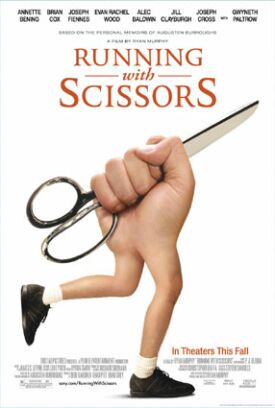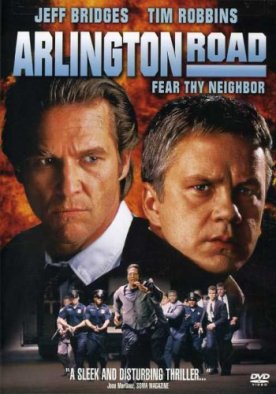Good Will Hunting
Good Will Hunting by Gus Van Sant is, like Kicked in the Head,
an illustration of what happens when you hand beardless boys $20 million
dollars or so and say, “Go make a movie, kid.” Good Will is better than
Kicked, but then anything this side of Flubber is better than
Kicked. The boys in this case are Matt Damon and Ben Affleck, who wrote
and star in the film, though they wisely got somebody else to direct. Not too
surprisingly, as the film is dedicated to Allan Ginsberg and William
Burroughs—an incredibly pretentious gesture even if those two gentlemen were
not among the premier artistic frauds of the age—the boys’ creation is a
child’s idea of “deep.” Damon plays Will Hunting, boy genius from South Boston,
who astonishes the world with his mathematical and other intellectual abilities,
even though he never has to study.
Instead, he cruises the bars with his friends from the neighborhood
(principally Affleck), picks up chicks and gets into fights. He picks up a
Harvard chick called Skylar, played by Minnie Driver, by showing off his
knowledge of American History and humiliating a rival for her attention, a
Harvard boy, then he gets himself out of jail by working out a mathematical
proof, conveniently set out on a blackboard in a corridor at MIT (where he works
as a janitor) and so impressing a top MIT mathematician, Gerry Lambeau (Stellan
Skarsgaard). As if this were not a contrived enough situation, we find that he
has been a victim of child abuse, and so Robin Williams enters the picture as
Sean Maguire, a fellow “Southie” who has become a shrink and who teaches Will
how to love again.
Barf! This movie falls down on two counts: first it is sheer fantasy, the
great American dream of having it all intellectually without having to work and
so confounding all the boring slobs who do work while still remaining a
cool guy (see what I mean about childish?) and second it is a therapy movie. It
asks for our pity for, while at the same time putting us at arm’s length from,
its principal character. Any self-identification with Will can take place only
on the level of fantasy, unless we have been abused ourselves (or think we have)
on this level as on the other. He is better than we are— indeed, of a different
order of humanity, like one of the epic heroes of old. Only, unlike the epic
heroes of old, he has never done anything useful. Like the movie itself, he’s
only meant to look mega-cool by dropping names that show off an amazingly
superficial knowledge of Freud and Shakespeare and Gordon S. Wood. I can’t tell
about the mathematics, but his political views, expressed in a speech to the
National Security Agency about why he can’t work for them, is a crude mixture of
half-baked environmentalism and puerile leftism.
This guy is supposed to be smart?
The only accurate and telling line in the movie comes from Will’s friend
Chuck (Mr Affleck), who says to him: “You’re sittin’ on a winning lottery ticket
and you’re too much of a pussy to cash it in.” That’s about the size of it. Yet
we’re supposed to feel sorry for the little jerk, who is afraid to love on
account of his history of abuse. By a wonderful coincidence, we find that he
shares this with Sean the shrink—who is also afraid to love since his
wife died of cancer two years before. The bond thus formed between him and Will
ultimately enables Sean to effect a cure in about 30 seconds by continually
repeating, “It’s not your fault,” until the two of them fall into each other’s
arms weeping.
Please!
Discover more from James Bowman
Subscribe to get the latest posts to your email.





![Inglorious Bastards [QT, note SP]](https://jamesbowman.net/wp-content/uploads/2009/08/ingloriousbastards.jpg)
